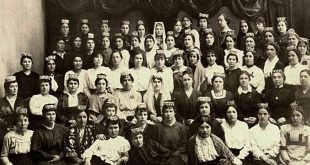This article is concerned with Islamic interpretations related to ‘othering’, taking as its main focus an analysis of publications on a Swedish Sunni website, ‘Maktabah Dâr-ul-Hadîth’, which has clear Salafi leanings.
Conflict and polemic between Sunni Muslims and Shiites have a long history. In the contemporary era, this polemic has been accentuated by the conflictual situation in the Middle East, and it is also colouring the minority Muslim situation. This article is concerned with Islamic interpretations related to ‘othering’, taking as its main focus an analysis of publications on a Swedish Sunni website, ‘Maktabah Dâr-ul-Hadîth’, which has clear Salafi leanings. Reports show that Shiites currently feel threatened by Salafis in minority contexts and the material cited in this article ‘others’ Shiite Islam and Shiites (amongst others), creating a stereotypical image that may have the potential to influence sectarian violence in real life. Several of the texts on the website deal with theological issues concerning the alleged false beliefs of Shiites. However, the article does not focus on theological creed but rather on manhaj, the programme for action, that is, the behaviour towards Shiites that is recommended in various situations, such as at work, in greeting Shiites or being invited to a Shiite wedding, thus affecting everyday situations. The analysis looks into what kind of ‘othering’ is promoted and what effect this othering might have if put into practice.
Bibliographic Information
Title: Shia as Internal Others: A Salafi Rejection of the ‘Rejecters’
Author: Athuman Chembea
Published in: Islam and Christian–Muslim Relations,Volume 28, 2017 – Issue 4
Language: English
Length: 21pages
 Shia as Internal Others A Salafi Rejection of the ‘Rejecters’
Shia as Internal Others A Salafi Rejection of the ‘Rejecters’
 Ijtihad Network Being Wise and Faithful Muslim in the Contemporary World
Ijtihad Network Being Wise and Faithful Muslim in the Contemporary World
